Nearly one-third of the women serving in the military on active duty are black. Recently, the Army updated its regulations on permitted hairstyles.
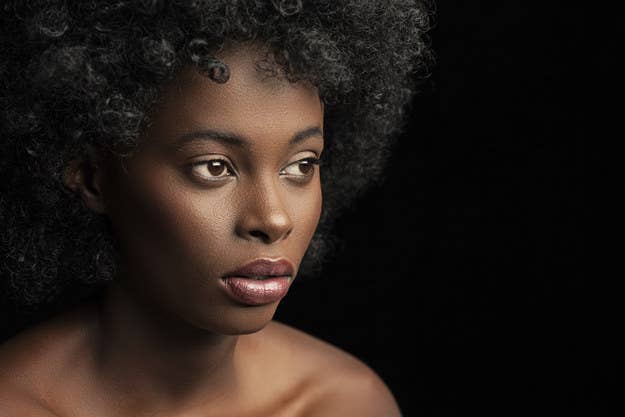
The order, referenced as Army Regulation 670-1, bans twists, dreadlocks, afros, (defined as a style in which the "bulk of hair exceeds more than 2" from scalp"), and regulates that braids and cornrows must be small in size.
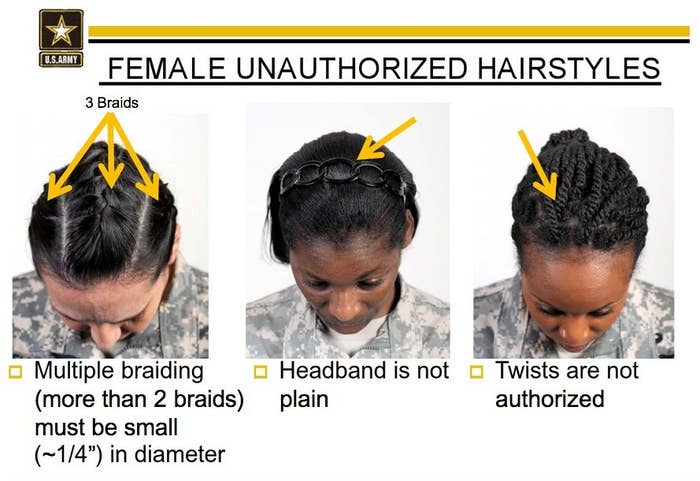
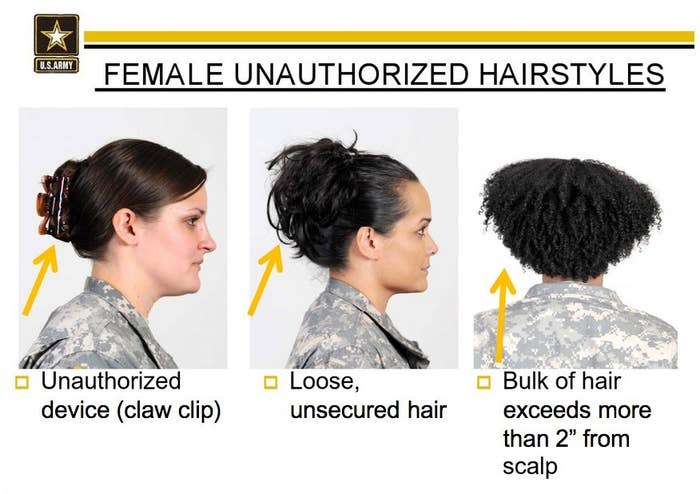
The new rules drew the ire of scores of black women who believe that they are unfairly targeted by the regulations, and the Congressional Black Caucus has now stepped in.
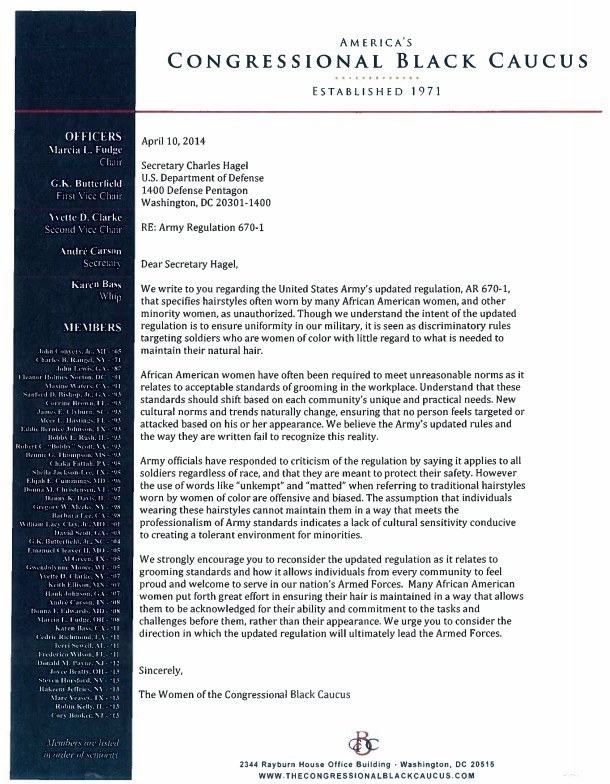
African American women have often been required to meet unreasonable norms as it relates to acceptable standards of grooming in the workplace. Understand that these standards should shift based on each community's unique and practical needs. New cultural norms and trends naturally change, ensuring that no person feels targeted or attacked based on his or her appearance. We believe the Army's updated rules and the way they are written fail to recognize this reality.
In addition to effectively highlighting the trouble with placing "uniformity" above the reality of diversity, the letter also takes aim at the racialization of terms like "unkempt" and "matted":
... The use of words like "unkempt" and "matted" when referring to traditional hairstyles worn by women of color are offensive and biased. The assumption that individuals wearing these hairstyles cannot maintain them in a way that meets the professionalism of Army standards indicates a lack of cultural sensitivity conducive to creating a tolerant environment for minorities.
In an interview with NPR, Lori Tharps, an associate professor of journalism at Temple University and co-author of Hair Story: Untangling the Roots of Black Hair in America, said she was also troubled by the terminology used to describe the hair of women of color.
"I call those, you know, culturally insensitive words," she said. "if you understood the backstory of black people and their relationship with their hair in this country, you would stay away from words like matted and unkempt because they have been used historically to keep somebody from getting a job or allow them to have access to certain institutions even."
Representative Barbara Lee of California, a member of the black caucus, released a statement in response to the Army's regulations declaring her intent to stand with the women of the Congressional Black Caucus.
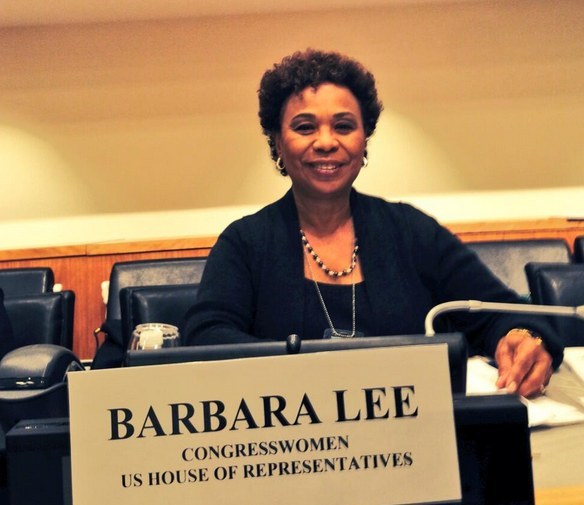
Lt. Col. Alayne P. Conway, Army spokeswoman, said that black women were involved in the process for developing and refining the guidelines, and that the group itself was led by a black woman.
"Not only were nearly 200 senior female leaders and soldiers, which included a representative sample of the Army's populations, part of the decision-making process on the female hair standards, but the group was also led by an African-American female," Conway told the New York Times.
The Army has declined to make the black women involved in developing the new regulations available to comment.
